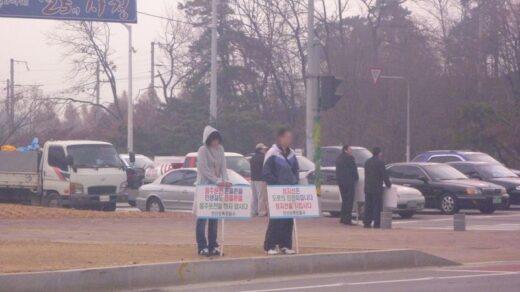Give Yourself an Edge in Korea with Valuable Korean Business Tips!
I send occasional Korean business tips and service updates to an opt-in-only list of recipients who want to improve their results in Korea. I focus my tips on valuable, actionable insights to help you in your business, investments, and legal matters in Korea. If you’re concerned that being on my list will compromise your personal information, rest assured that you retain all rights to your data under GDPR guidelines. I will never share your email address with anyone without your permission. In fact, my newsletter list (i.e. your email address) is hosted on MailChimp (not on my computer or server) and you can unsubscribe from the list anytime. I encourage you to sign up, at least to get the reports listed below. If you don’t like them and/or still feel that staying on my list isn’t in your interest, simply unsubscribe using the link in that very first email. I don’t think you’ll want to do that when you see how much great information I’ve included in these reports, but the decision will be yours! Even if you stay on the list, you’ll only hear from me very occasionally.
When you sign up, I will immediately email you links to the following eight free reports.
Free Report #1. Korean Business Etiquette Guide
Learn how to interact with Koreans in business. This valuable guide includes practical guidelines on the following topics:
- Understanding and Correctly Using Names and Titles in Korea
- Greetings and Introductions in Korea
- Business Card Exchanges in Korean Business
- Business Meeting Etiquette in Korea
- Gift Giving in Korea
- Table Manners and Drinking Etiquette in Korea
- Social Interactions and Conversation in Korean Business
Free Report #2. Guide to Business Cards in Korea
Business cards are important in business in Korea. Get hands-on Korean business tips about the following topics:
- Why Business Cards Are Important In Korea
- Business Etiquette on How to Exchange Business Cards
- How to Translate and Design Korean Business Cards
- How to Get Korean Business Cards Printed both Inside and Outside Korea
Free Report #3. Collection of 40+ Korean Translation Tips
Over the years, I’ve written dozens of tips to help non-Koreans dealing with Korean translation get the most value out of the work. Here’s the whole list:
- Tip #1: A Korean-Language Google Translation Error and Best Practices for Handling Your Korean Projects
- Tip #2: Is the Standard Korean Greeting a Question or Not?
- Tip #3 : A Quirk of Punctuation Usage in Korean
- Tip #4: This Week’s Episode of “Steven’s Believe It or Not!”
- Tip #5: Greetings to Koreans Can Be Particularly Tricky
- Tip #6: A Surprising Aspect of Character Limitations in Korean Translations
- Tip #7: Use a Korean-Style Holiday Greeting; Don’t Just Translate Your English One
- Tip #8: Don’t Make Errors Like This One in the Microsoft Windows 7 Korean-Language Interface
- Tip #9: To My Esteemed Translation Agency Reader
- Tip #10: Korean is Taller and Skinnier Than English
- Tip #11: Korean Has a Plural Form; It Just Doesn’t Get Used Much
- … and 30+ more!
Free Report #4. 10 Big Ideas for Marketing to Koreans
This short Executive Report compiles valuable Korean business tips about marketing in Korea. Because each idea is accompanied by a marketing takeaway, you can apply these tips to your work right away.
- Idea #1 – Koreans aspire to high achievement quickly.
- Idea #2 – Koreans think their country is small.
- Idea #3 – Korea had a rough time entering the modern era but is now on a roll.
- Idea #4 – Korean relationships are characterized by sharing.
- Idea #5 – Koreans see themselves as racially uniform and unique.
- Idea #6 – Korean society is role and hierarchy based.
- Idea #7 – Koreans all want to unify the country.
- Idea #8 – Korean society is getting old fast
- Idea #9 – Koreans dream of creating a new and better world.
- Idea #10 – Ultimately, Koreans think they can’t be understood by outsiders
- Additional insights: Transferring these lessons to Japan and China
Free Report #5. Common Korean Expressions Kit
This collection of easy, common Korean expressions will help you impress your Korean hosts!
- Common Korean Expressions
- Korean Expressions in Four Fonts (Word and .eps formats)
- Links to recorded audio.
Free Report #6. Top 10 Gifts to Give in Korea
Don’t visit Korea without a gift. But don’t just give any of the following gifts until you’ve read the Korean business tips in this report. Most importantly, each gift matches a specific situation.
- Souvenir from home
- Liquor
- Invitation for dinner
- Household goods
- Money
- Gift basket
- Invitation to visit
- Gift certificate
- Stickers/$2 bills
- Souvenir from place visited
Bonus ideas – Underwear, socks, taffy and baby shoes
Free Report #7. Korean Translation Services Buyers Guide
This short guide covers basic tips for hiring a Korean translator. You may be surprised to know that I don’t think my company and I are the best option for every Korean translation project. As a result, this document lists when we’re competitive and when we aren’t. To do that, the guide uses the following four steps as an outline
- Step #1 – Understand the translation resources available to you and determine which vendor category is right for your project.
- Step #2 – Determine which vendor within your chosen category will deliver the highest value to you.
- Step #3 – Prepare your project for a successful translation/typesetting outcome.
- Step #4 – Review your project and evaluate the service you’ve received.
Also, this Guide includes a section on the basics of Korean writing, a short style guide and information on Korean dialects
Free Report #8. Succeed in Korea by Understanding Korean Company Hierarchy
Understanding how Korean company hierarchy works is critical for success in Korean business. The Korean business tips in this executive report will get you up to speed!
- Four key lessons
- Understanding hierarchy in Korea is key to your success
- Hierarchy is even built into the Korean language
- There are no “flat” Korean organizations
- Littler interaction between equals
- Foreigners are exempt
- Nuts and bolts of large Korean company business hierarchy


